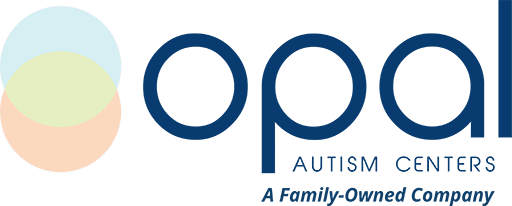Behavior therapy is a form of treatment that aims to change a child’s negative behavior patterns and replace them with positive ones. This type of therapy is often recommended for children with developmental disorders or mental health conditions, such as autism spectrum disorder (ASD). If you’re concerned about your child’s behavior, it’s important to know the signs of behavior therapy needs in children.
Different Signs of Behavior Therapy Needs
Difficulty Communicating
One of the most common signs of behavior therapy needs in children is difficulty communicating. Children with autism or other developmental disorders may struggle to express themselves verbally or non-verbally. They may have trouble understanding social cues, making eye contact, or responding appropriately to questions. Behavior therapy can help children develop better communication skills and learn how to express themselves effectively.
These communication signs may include:
- Tantrums: Tantrums are a common occurrence in young children, but if they are happening frequently or are particularly intense, it may be a sign that your child needs behavior therapy. Tantrums can be a result of frustration, anxiety, or difficulty communicating their needs. Behavior therapy can help your child learn coping skills and develop better communication skills to express themselves in a more positive manner.
- Obsessive behavior: If your child exhibits obsessive behaviors, such as repetitive actions or routines, it may be a sign that they need behavior therapy. Obsessive behaviors can be a sign of anxiety or other mental health conditions, and behavior therapy can help your child develop coping skills and strategies to manage their behavior.
Social Withdrawal
Other signs of behavior therapy needs in children may include social withdrawal. Children who struggle with anxiety or other behavioral disorders may avoid social situations and prefer to be alone. They may struggle to make friends or interact with others in a meaningful way. Behavior therapy can help children build social skills and confidence, which can improve their overall quality of life.
Withdrawal may also include regression. If your child was previously meeting developmental milestones but has suddenly started to regress, it may be a sign that they need behavior therapy. Regression can occur for many reasons, including stress, trauma, or changes in their environment. Behavior therapy can help your child work through these challenges and regain their previous developmental progress.
Aggressive or Disruptive Behavior
Aggressive or disruptive behavior is a hallmark among signs of behavior therapy needs. Children who struggle with ADHD or other behavioral disorders may have trouble controlling their impulses or regulating their emotions. They may act out in class, have difficulty following rules, or struggle with aggression towards others. Behavior therapy can help children develop self-control and learn how to manage their emotions in a healthy way.
Aggression can take many forms, from hitting and biting to throwing objects and verbal outbursts. If your child exhibits aggressive behavior, it may be a sign that they are struggling to cope with their emotions or communicate effectively.
Difficulty with Transitions
Difficulty with transitions may also be among signs of behavior therapy needs in children. Children with autism or other developmental disorders may struggle with changes in routine or transitions between activities. They may become anxious or upset when faced with a new situation or activity. Behavior therapy can help children learn coping strategies and develop better flexibility and adaptability.
Lack of Focus
Finally, a lack of focus is another of many different types of signs of behavior therapy needs. Children who struggle with ADHD or other behavioral disorders may have difficulty staying focused or completing tasks. They may become easily distracted or have trouble following directions.
This may also include signs of behavior therapy needs such as hyperactivity. This can make it difficult for children to learn or complete tasks, leading to frustration and negative behaviors.
Additionally, lack of focus may also include a similar lack of impulse control. This can be a sign of ADHD or other mental health conditions, and behavior therapy can help your child develop coping skills and strategies to manage their behavior. Behavior therapy can help children develop better focus and concentration, which can improve academic performance and overall quality of life.
Help with Signs of Behavior Therapy Needs in Children
Behavior therapy can be an effective form of treatment for children with developmental disorders or mental health conditions. If you’re concerned about your child’s behavior, it’s important to look for the signs of behavior therapy needs in children, such as aggression, hyperactivity, social isolation, tantrums, regression, obsessive behavior, difficulty with transitions, and lack of impulse control. By recognizing these signs early on and seeking appropriate treatment with Opal Autism Centers, you can help your child develop the skills they need to lead a happy and healthy life.







